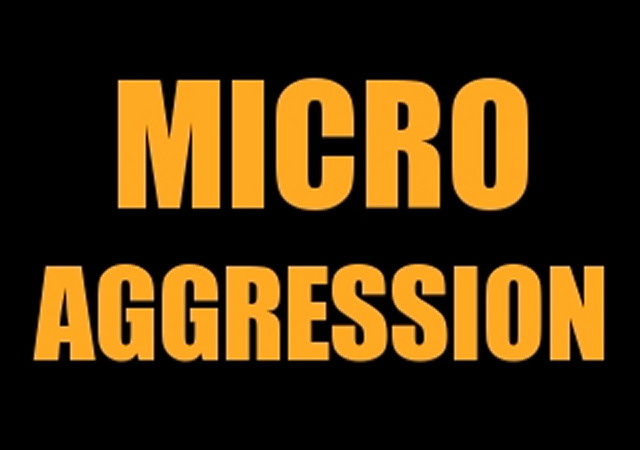Students at Haverford College Can be Punished if Others Determine They Used a Microaggression
“smaller acts such as microaggressions are also devoid of respect and thus violate the Code”

This policy has earned Haverford College FIRE’s speech code of the month.
From the FIRE blog:
July 2021 Speech Code of the Month: Haverford College
At Haverford College, a recent amendment to the school’s Social Honor Code means students could be subject to punishment if other students determine they’ve committed an “act of … microaggression.” The amendment also states that students must be respectful of “community standards” when expressing “political opinions,” and that “political beliefs [that] perpetuate discrimination,” or that are used to “justify disrespectful or discriminatory words,” violate the code.
If Haverford’s promises of free speech are to be relied upon, it cannot delegate power to students to police the protected expression of other students. For this reason, we’ve made the policy FIRE’s Speech Code of the Month for July 2021.
The policy: going from bad to worse
Haverford’s Social Honor Code was a problematic policy before this amendment, imposing vague restrictions that earned the policy a “yellow light” rating from FIRE for its potential for abuse. The policy appeared as follows:
[W]e recognize that acts of discrimination and harassment, including, but not limited to, acts of racism, sexism, homophobia, transphobia, classism, ableism, tokenism, cultural insensitivity, discrimination based on citizenship status, discrimination based on religion, and discrimination based on national origin, accent, dialect, or usage of the English language are devoid of respect and therefore, by definition, violate this Code. We understand that these discriminatory acts can take many forms, and smaller acts such as microaggressions are also devoid of respect and thus violate the Code.
Thus, microaggressions were somewhat cabined under prohibited “discriminatory acts,” as the policy framed microaggressions as a form that discriminatory acts can take.
 DONATE
DONATE
Donations tax deductible
to the full extent allowed by law.








Comments
A vital component of “diversity” is “viewpoint diversity.” Everyone should be reminded of this at every opportunity. Perhaps the biggest challenge in operating a diverse college is having everyone learn to live together. For over 100 years, Haverford College has gotten everyone to live together more or less in peace. The basic plan was that there are two types of conduct — minor stuff like “microaggressions” or accidentally stepping on another student’s toes which should be kept outside the scope of a formal judicial system. Major stuff, like shooting H in the dorms, stealing, cheating on exams, are within the scope of most campus judicial systems. If Haverford can’t get its students to resolve conflicts between students resulting from perceived slights without resorting to a formal judicial process, everyone from the VP for Student Affairs down to the individual dorm counselors/”resident advisors” should be fired and replaced with competent people.
What the heck is an “act of tokenism”? Adding one minority person to a committee as affirmative action? If a student government committee is appointed that excludes all minority members, would that be a complete defense to being accused of an “act of tokenism?”
When a Professor of Rhetoric or English marks down a student’s performance for poor use of English, would that be “discrimination on the basis of dialect?” Same thing if the committee responsible for picking the Senior commencement speaker avoids inarticulate students.
I think the escalation potential for minor stuff is seen as a feature, not a bug. They want to intimidate especially white students, who are probably far more at risk of being judged as micro-aggressors than others doing the same thing would be. White guilt and fear is seen as a good and equitable thing.
But if I were a white student I don’t think I’d want to be there — or Bryn Mawr either judging by the disruptions that happened there about a year ago.
How are they going to function in the real world? God help them if they were to somehow for some reason join the Armed Services
I have a bad feeling that, at the rate things are going in the Armed Forces, they may fit it just fine.
So, if I’m walking along a sidewalk at Haverford and I walk too close to another person, I’m disrespecting their personal space, and can be punished for a microagression.
If I’m walking along a sidewalk at Haverford and I step aside to leave space for another person, I’m shunning them, and can be punished for a microagression.
Microagressions are only felt and noted by the micro-brained.
“students could be subject to punishment if other students determine they’ve committed…”
When the right does this, the left screams vigilantism.
Seems to me we might as well start. They scream anyway.
Offensensitivity taken to extremes.
Kids have to research this kind of nonsense before they apply to schools. Otherwise, they will be subject to all kinds of discriminatory policies.
The trouble is, what about the rising junior who applied 3 years ago to a college that didn’t feel like this at all? Now 2 years of high tuition later and he’s being told that he must be liked by enough minority students and if not he can receive formal notations on his transcript.
If you get punished, sue them for civil rights violations.
Thought crimes.
— Someone thinks you committed a crime, therefore you are guilty.
— The only defense against this is to proactively accuse people before they accuse you.
You’re exactly right. Anyone who fails to accuse one of a thought crime is to be proclaimed guilty of a thought crime by omission; failure to pro-actively condemn the conservatives/rightists for either voicing or failure to voice an opinion.